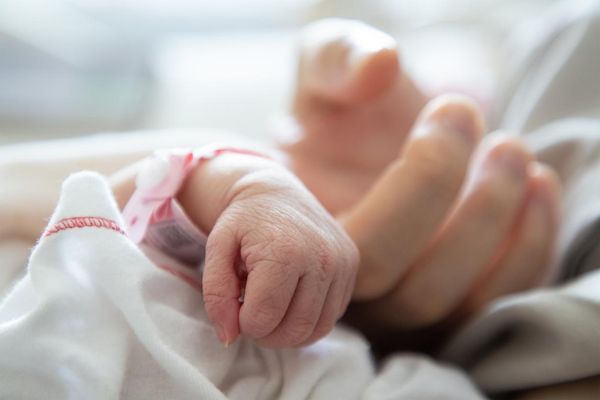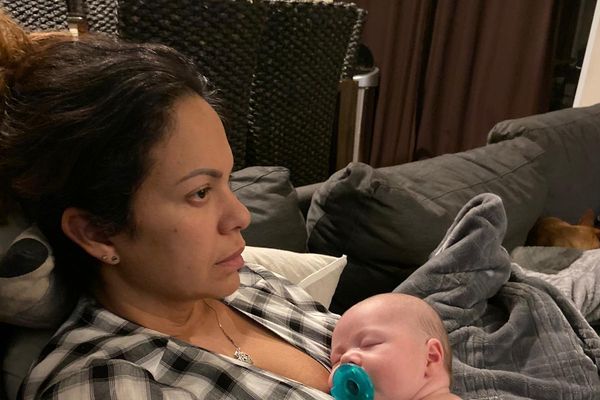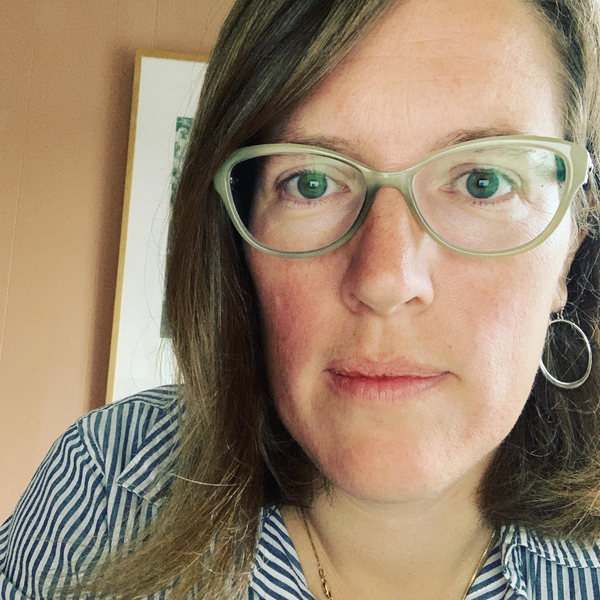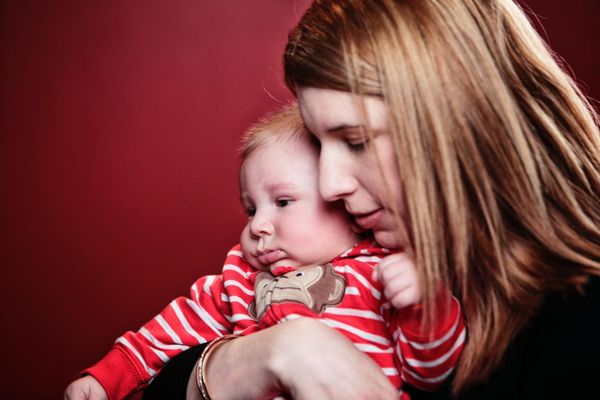As a practicing maternal child health nurse, I come into contact with many moms before and right after delivery. I witness new mothers trying to navigate those first tired hours. I watch veteran moms introduce their newest member of the family to their other children. Each mom is unique and each relationship between mom and newborn is different, but all of these women are at risk for experiencing symptoms of "baby blues," which affects 80 percent of new mothers, and postpartum depression (PPD).
While there are similarities between baby blues and PPD, there are major differences in the severity and duration of symptoms. These symptoms can present themselves in many ways, at varying intensity and at different times during postpartum.
So how do you tell the difference between baby blues and PPD? If you're not sure if the symptoms you're experiencing are PPD, you need to visit your health care professional who may:
- Conduct a depression screening that may include asking you questions or having you fill out a questionnaire
- Order other tests, if warranted, to rule out other causes for your symptoms
Take a look at the below signs and symptoms and take note if you're experiencing any of them. Bringing a list to your health care professional can help with determining if you're experiencing baby blues or postpartum depression.
Baby blues, which last for only a few days to maybe a week or two after giving birth, can include:
- Mood swings
- Anxiety
- Sadness
- Irritability
- Feeling overwhelmed
- Crying
- Reduced concentration
- Appetite problems
- Trouble sleeping
PPD includes some—if not all—of these symptoms, but they are more intense and last longer than the baby blues. They also may eventually interfere with your ability to care for your baby and handle other daily tasks including taking care of you.
Some of the main symptoms to watch out for are:
- Depressed mood or severe mood swings
- Excessive crying
- Difficulty bonding with your baby
- Withdrawing from family and friends
- Loss of appetite or eating much more than usual
- Inability to sleep (insomnia) or sleeping too much
- Overwhelming fatigue or loss of energy
- Reduced interest and pleasure in activities you used to enjoy
- Intense irritability and anger
- Fear that you're not a good mother
- Hopelessness
- Feelings of worthlessness, shame, guilt or inadequacy
- Diminished ability to think clearly, concentrate or make decisions
- Restlessness
- Severe anxiety and panic attacks
- Thoughts of harming yourself or your baby
- Recurrent thoughts of death or suicide
HealthyWomen recently conducted a survey, sponsored by Sage Therapeutics Inc., with more than 1,000 female respondents between the ages of 18 and 49 years old who are either pregnant or planning to become pregnant. The results showed 91 percent of the women surveyed agreed that there is a societal pressure on mothers to hide the struggles, anxieties and sadness that may accompany motherhood.
Let's all work to stop the stigma of PPD and openly discuss the challenges of postpartum depression–whether it's sharing how tired you are or something more serious that could be a sign of PPD. Again, I can't stress it enough: Speak to a health care professional if you are experiencing any of the symptoms above, even if you think they're not a big deal. You are not alone and there are resources that can help you manage and get back to feeling like you and enjoying this special time.
To view more results for our recent survey, go here.
- When Postpartum Depression Hit, I Heard Only the Lies My Depression Told Me - HealthyWomen ›
- When Postpartum Depression Hit, I Heard Only the Lies My Depression Told Me - HealthyWomen ›
- New Moms Are Busy Checking on Their Babies. But Is Anyone Checking on Them? - HealthyWomen ›
- I Lost My Daughter to Postpartum Depression - HealthyWomen ›
- Difference Between Postpartum Depression and "Baby Blues" - HealthyWomen ›







